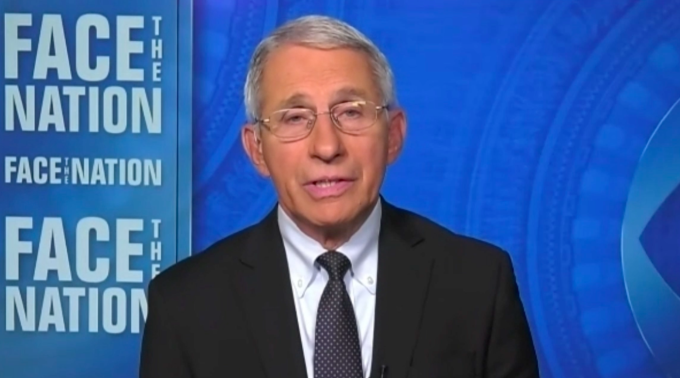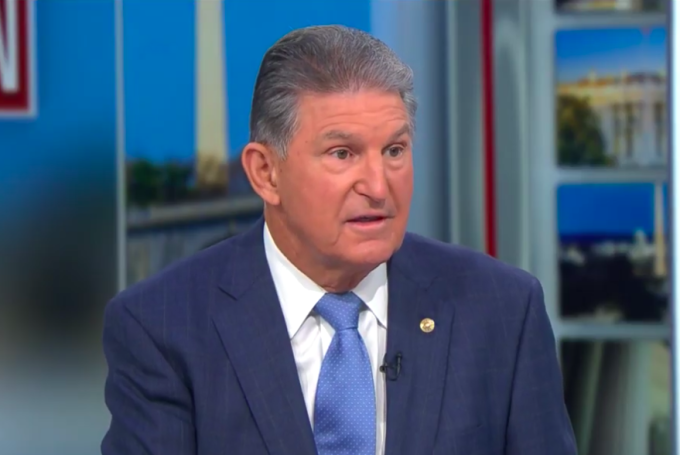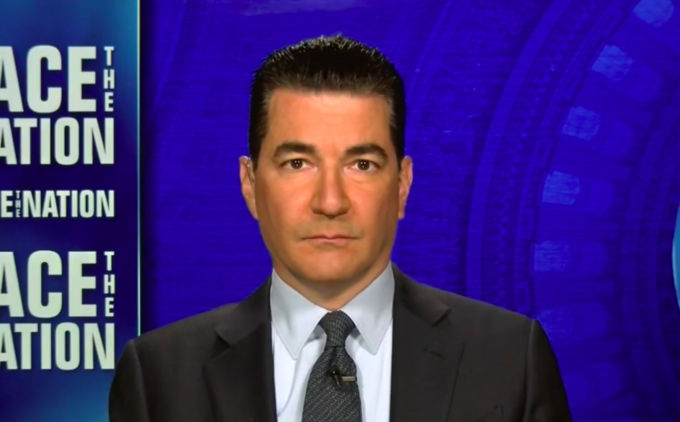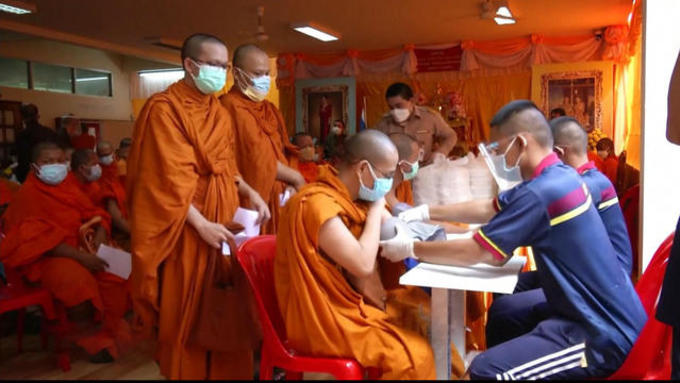| "The risk of a confirmed case who is vaccinated to infect others is about 10% to infect one other individual and lower than 10% to infect more than one." - Dr. Sharon Alroy-Preis, Israel's director of Public Health Services, on whether or not the vaccinated can spread the COVID-19 virus.
Welcome to the "Face the Nation" Five at Five newsletter. Scroll down for your five takeaways from today's broadcast of "Face the Nation" on CBS. Did someone forward you this? Sign-up at cbsnews.com/email. 1. Fauci says unvaccinated Americans are "propagating this outbreak" as Delta spreads  Dr. Anthony Fauci, chief medical adviser to President Biden, said that Americans who remain unvaccinated against the coronavirus are "propagating" the latest outbreak of cases of the highly contagious Delta variant. What Fauci said: "We have 100 million people in this country ... who are eligible to be vaccinated, who are not vaccinated. We've really got to get those people to change their minds, make it easy for them, convince them, do something to get them to be vaccinated because they are the ones that are propagating this outbreak." Why it matters: Coronavirus infections, hospitalizations and deaths have risen across the country, with the Delta variant driving the surge in areas with low vaccination rates. Nearly all patients hospitalized with COVID-19 are unvaccinated, with the vaccines continuing to provide strong protection against severe illness. 2. Manchin says Senate wants to pass bipartisan infrastructure bill by Thursday  While the Senate awaits final legislative text for the roughly $1 trillion bipartisan infrastructure bill, Senator Joe Manchin from West Virginia, a key Democrat involved in negotiations over the proposal, said Sunday that the Senate wants to approve the plan to improve the nation's roads, bridges and rails by Thursday. What Manchin said: "They're drafting it. The text will be done, hopefully we'll introduce it today. We'll vote on it tonight. We'll start the amendment process hopefully on Monday. But we want to be done by Thursday. We want to move on." Why it matters: After the bipartisan group of senators and the White House reached a deal on the infrastructure bill on Wednesday, the Senate moved swiftly on a procedural vote to advance the plan, clearing a key hurdle after weeks of discussions over the details of the measure. Senate negotiators are still working to turn the proposal into legislative text, but Senate Majority Leader Chuck Schumer has pledged the chamber will pass both the bipartisan infrastructure bill and a larger $3.5 trillion budget resolution, which is the blueprint for a second, more sweeping infrastructure measure, before senators depart for the August recess. 3. Gottlieb says vaccines still effective at preventing serious illness from Delta variant  Dr. Scott Gottlieb, the former head of the Food and Drug Administration, said that COVID-19 vaccines still provide strong protection against serious disease and death, even as new research shows vaccinated individuals can spread the worrying Delta variant. Gottlieb noted that the COVID-19 vaccines were primarily intended to significantly reduce the risk of severe illness and hospitalization. Unvaccinated individuals account for the overwhelming majority of new hospitalizations and deaths. What Gottlieb said: "The original premise behind these vaccines were that they would substantially reduce the risk of death and severe disease and hospitalization. And that was the data that came out of the initial clinical trials. That premise is still fully intact. We still see that these vaccines are doing a very good job preventing symptomatic disease, preventing hospitalization and death. The second premise around these vaccines is that they would reduce the incidence of infection, any infection, including asymptomatic infection, and they can also reduce the risk of transmission. And therefore, they would be an important public health tool at effectively ending the epidemic, the pandemic, because they would prevent people from transmitting the virus. That premise is still intact." Why it matters: The vaccine was also intended to reduce both asymptomatic and symptomatic infection, thereby reducing the spread of transmission and making the vaccines an important public health tool in combating the pandemic. 4. U.S. COVID-19 daily cases higher now than this time last summer  In the last week, COVID-19 hospitalizations have doubled -- the CDC predicts deaths will rise in 43 states over the next two weeks. CBS News' Mark Strassmann reports that as hospitalizations and deaths rise due to the virus, fear is a motivating factor, with vaccination rates up 30% nationally. 5. Delta variant and inconsistent public health measures drive surge in COVID-19 cases worldwide  CBS News' Elizabeth Palmer reports that the World Health Organization says if vaccine inequity persists, the world's poorest countries will suffer the most, with many not expecting to get the COVID vaccine until 2023. |
No comments:
Post a Comment